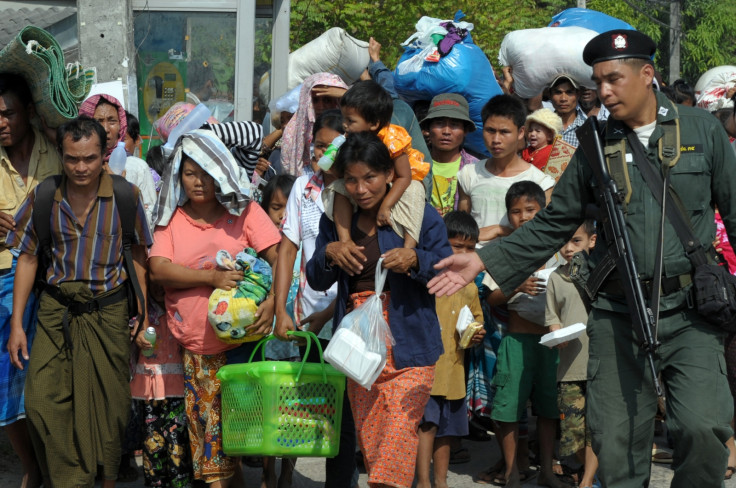In a first, 68 Myanmar refugees voluntarily return from camps in Thailand
The UN refugee agency called the movement a 'milestone' as both Thai and Myanmar governments have approved it.

About 68 Myanmar refugees are being repatriated from camps along the Thailand-Myanmar border on Tuesday (25 October) after they were displaced by clashes. This is reported to be the first such voluntary repatriation and is said to be taking place over two days.
The United Nations refugee agency (UNHCR) has called the movement a "milestone" stating that it is for the first time both the Thai and Myanmar governments have given their consent for repatriation. However, it emphasised that the return of the refugees would not lead to an exodus.
The return began with one family leaving a camp in Thailand's western province of Ratchaburi on Tuesday (25 October). They will be followed by dozens more from a different camp in Tak province a day later.
"This particular movement is a milestone," Iain Hall, UNHCR's senior field coordinator told Reuters from the border town of Mae Sot. "But it won't be the start of a large exodus," he said.
Over 100,000 refugees and internally displaced people are believed to be living in up to nine camps along Thailand's border, with little hope of returning to Myanmar, which faced political and economic uncertainty in the recent few years. But with the civilian government coming to power under Nobel Peace Prize winner Aung San Suu Kyi's leadership, the situation is reported to have changed in Myanmar.
"The Myanmar government came over and issued certificates of identification saying these people are their citizens," Hall said. He added that those who chose to return took the decision only after consulting with their families in Myanmar to check it was safe to return.
Some of the residents of the camps were thought to have been living there for as long as 30 years. Nearly 80% of them are ethnic Karen from eastern Myanmar who either fled armed conflicts years ago or faced harassment allegedly by the Myanmar army during decades of military rule.
With refugees returning to their homeland, successive Thai governments reportedly considered shutting down these camps permanently. The UN rights agency said it is not an appropriate time to take such actions now.
"We're not promoting return and we've made that clear with both governments," said Hall. "We don't yet believe it is the time to return but of course these people have the right to return if they want to."
An official from Myanmar's Ministry of Social Welfare, Relief and Resettlements told Reuters that the refugees wanted to return to their home country out of their own wish and that Suu Kyi's government was ready to welcome and accommodate them.
However, Karen rights groups had said last week that it was too early to be repatriating the refugees. It said the Myanmar government should first make all provisions for refugees in terms of education, healthcare, jobs and accommodation before taking them in, Myanmar Times reported.
© Copyright IBTimes 2025. All rights reserved.




















